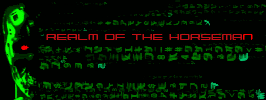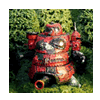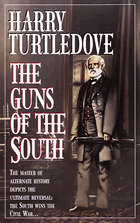|
If you've every seriously researched an aspect of SF, you will encounter Ansible! ?It's smart and funny. ?
I think that Card has gone downhill. Ender's Game explored the abnormal psychology associated with child soldiers. What profound realization did Shadow Puppets illustrate? When you become a parent, you lose interest in politics outside of what directly effects your family. I found this to be rather obvious and banal. ?
Another fun author is Lois McMaster Bujold. She writes these space operas about Miles Vorkosigan, a deformed aristocrat turned mercenary space admiral. They're very clever, with just the right mix of character, action, technology, sociology and psychology. They're fast-paced, and each novel in the series has a distinct flavor; there's not much formula here beyond the author saying, "What's the worst thing I can do to this character?" ?I particularly recommend Cordelia's Honor and Memory. ?
------------------
?And I can't let a thread like this go without discussing the subject of my scholarly obsession, Edward E. "Doc" Smith. Smith invented the space opera in his Skylark of Space, written back in 1919. This story is fun in its way, but I prefer his magnum opus, the huge Lensman series.
Too large in scope to fit into a single book, Doc divided it up into four seperate volumes (each of which was serialized in several parts): Galactic Patrol, Gray Lensman, Second Stage Lensmen, and Children of the Lens. When the hardcover editions were publiched in the late forties and early fifties, two prequels were added. I maintain that the prequels are interesting, but ultimately unnecessary to the plot of the original series. In fact, the first volume, Triplanetary, is deadly boring (along the lines of the Silmarillion) if you don't already know the main story. ?
The main part of the series follows the development of Kimball Kinnison, Lensman of the Galactic Patrol, as he battles Boskone, a conspiracy bent on subverting civilization into dictatorship and enslavement. Boskone's methods are both direct (giant space fleets and ur-Death Stars) and subtle (corruption and drugs), and Kinnison must learn to adapt to each new tactic if he is to save civilization.
We see an arms race as each faction introduces new technologies into their fleets which the other must discover if they are to survive. I won't reveal too much of the plot, but let me just say that the totality of the series is far greater than the sum of its parts, the overall plot structure of the main series is a large part of what makes it so seminal and unique. No one had ever created an SF series like this, with a plot that stretched, deliberately, over several books. ?
Recommended reading order. ?
Because of the bizarre publication history of the Lensman series, there are different opinions about the correct reading order.
Here's what I recommend: Read the original four books, Galactic Patrol, Gray Lensman, Second Stage Lensmen, Children of the Lens, first, and in that presented order.
SKIP any prologues or introductions that may be found in these books; they give away the ending.
Then, if you enjoyed the main series, tackle the prequels, Triplanetary and First Lensman. ?
Clear Ether!
_________________
-Ethan
|











